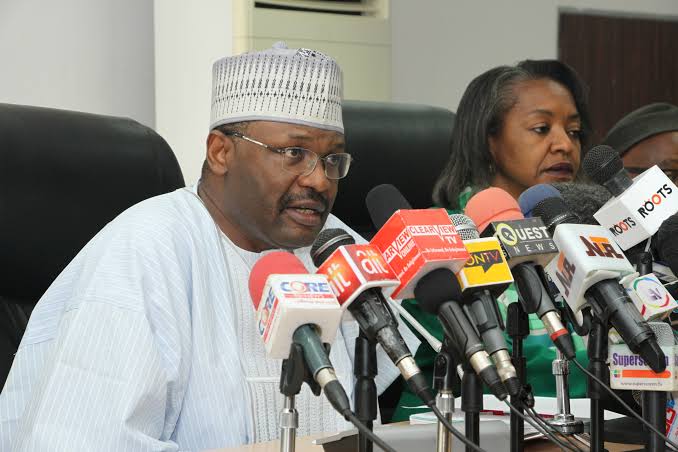The Independent National Electoral Commission (INEC) has announced plans to seek amendments to the Electoral Act 2022 from the National Assembly in preparation for the 2027 elections.
The proposed changes are aimed at providing clarity on result management, particularly regarding the manual transfer and electronic transmission of election results.
INEC Chairman, Prof. Mahmood Yakubu, revealed this during a meeting with the Resident Electoral Commissioners (RECs) in Abuja on Thursday.
He highlighted that result management was one of the eight key areas identified from the 2023 general election that require legislative action.
One of the major proposals is the relaxation of the accreditation process to allow the use of computer-generated voter slips for voting.
These slips could either be printed from the commission’s website or issued to voters, in place of the current reliance on Permanent Voters Cards (PVCs).
This change, according to Yakubu, would reduce costs, address issues related to PVC collection, and curb practices such as the buying of PVCs to disenfranchise voters.
Yakubu also emphasized the need for legal clarity on the use of both manual and electronic methods for result transmission.
He further indicated that with the introduction of the Bimodal Voter Accreditation System (BVAS), the use of PVCs as the exclusive form of voter identification should be reassessed.
While those who already possess PVCs can still use them, the commission is considering allowing computer-generated slips for voter accreditation in the future.
In addition to these recommendations, INEC is pushing for reforms to accommodate early and special voting for essential election workers like INEC staff, security personnel, and journalists, as well as for diaspora voting.
The commission also aims to establish an electoral offences tribunal and a separate body to manage political party registration and regulation.
Prof. Yakubu noted that the commission is focusing on cleaning up the voters’ register, working closely with agencies like the National Identity Management Commission (NIMC) and the National Population Commission (NPC).
Other reform areas include improving voter access to polling units, promoting affirmative action for under-represented groups, enhancing voter education, and countering misinformation.
The INEC chairman stated that the recent completion of five off-cycle governorship elections and several bye-elections since the 2023 general elections provides an opportune moment for implementing the commission’s review recommendations.
A total of 142 recommendations were made following the 2023 elections, with 86 requiring administrative action by INEC and 48 needing involvement from various stakeholders such as security agencies, political parties, and civil society organizations.
Prof. Yakubu stressed the importance of engaging with the RECs to ensure the successful implementation of these reforms.

















